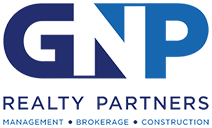Time and reliability are critical factors in the real estate industry. Efficient pre-planning and management ensures a project being completed on time and on budget. At GNP Realty Partners, our real estate project management services provide valuable oversight that minimizes delays, manages costs and optimizes property performance so that investors and stakeholders can be reasonably reassured of the project getting completed as planned.
Want to learn more about Construction Management?
Request Information | or Call Us at 312-329-8400
What is Real Estate Project Management?
Projects in the real estate industry vary from small capital projects to ground up large development of assets. All projects require detailed planning that often involve skillful negotiations. As a real estate investor, the role of a project manager is to handle planning, schedule management, resource management, collaboration, stakeholder relations, and other responsibilities on your behalf.
Real estate project management companies like GNP are responsible for developing and implementing real estate projects of various shapes, sizes, and scopes. Their primary duties include recommending and selecting sites, securing project funds, managing the construction phase, informing the community, and overseeing property maintenance.
Why Project Management is So Important
Real estate development in a large city like Chicago is a multi-step process that can be lengthy, complicated, and risky. The real estate project management process can take years, from initial planning and construction to completion, with plenty of obstacles that can pop up along the way.
As a stakeholder, taking a few real estate project management crash courses probably won’t equip you with the knowledge and experience necessary to “swim with the sharks” in a highly competitive marketplace. On the other hand, partnering with professionals who possess real estate development management experience will typically provide you with highly profitable investment opportunities that may have otherwise gone overlooked.
Stages in a Project Development Life Cycle
Two factors can play a significant role in the risk of a given project: project type and stage. An example of a project type with relatively low risk across all life cycle stages would be a retail “build-to-suit” project.
On the flipside, “speculative” industrial, residential or office projects involve more leasing risk because there are typically no identified tenants at the outset. Investors also face a higher pre-development risk if the project design is unique, when financing is difficult to obtain, or regulatory hurdles abound.
Early in the project development cycle, there are more potential obstacles and unknowns. As the project nears the “shovel-ready” construction stage, many of these obstacles have been addressed and resolved, allowing more certainty for execution, costs, and scheduling.
These three stages are consistent across all real estate development project types:
The early stage of a project focuses on due diligence, research, and permitting and is often the most variable in terms of length. Investing at this stage carries the most significant risk because there are many unknowns. Some of the duties in this phase include:
- Market analysis and feasibility studies
- Land acquisition or securing option rights to purchase land
- Environmental assessments
- Surveys
- Site plans, development plans, and building plans
- Permitting
- Preliminary budget and schedule
- Infrastructure improvements
- Identifying construction financing
Note: The land application process is one potential hurdle at this stage that can delay a project for months or even years.
The middle phase involves constructing the improvements. Since most pre-development tasks will have already been completed, the project risks at this stage are greatly minimized but not eliminated. Some of the essential steps during this phase may include:
- Demolition or make safe measures
- Negotiating and finalizing subcontracts
- Actual construction
- Project marketing
- Drawing on construction financing
- Pre-leasing agreements
- Arranging permanent financing (if not already done)
- Designating a property manager (if not already done)
The final stage of the development process, operation, is the first stage of the building’s life. The project is typically financed at this phase through construction financing or another round of short-term “bridge” financing until it reaches a “stabilization” threshold. Activities during the final stage may include:
- Ongoing leasing and marketing
- Finding a buyer (if not already done)
- Determining a hold strategy (if not selling)
- Ramping up property management activities
- Achieving stabilization
Why Project Management Is in High Demand for Real Estate
As you can see, efficiently managing all stages and aspects of the real estate development life cycle can be challenging. And that’s where a reputable project manager comes in. A typical job description for a real estate project manager would highlight sought-after qualifications like real estate development expertise, analytical thinking, business acumen, leadership, building systems knowledge, and communication skills.
Those seeking real estate project management certification must have at least a bachelor’s degree in architecture, business, community development, or a similar field. To be successful in the real estate industry, a reputable real estate project manager should have a firm grasp of concepts like financial management, risk management, and team management. As more and more applications are developed, the project manager must stay up to date on applications that streamline and organize the project.
They must further possess additional skills like flexibility, patience, industry knowledge, and an action-oriented mindset. No wonder the average base salary for a real estate property manager in Chicago is over $90,000 a year!
Types of Real Estate Projects We Specialize In
At GNP Realty Partners, our experienced real estate project management professionals are highly qualified to assist clients on these types of commercial and residential projects:
- Multi-family properties
- Office
- Industrial
- Retail
- Hospitality
At GNP, we offer turnkey real estate development management solutions that seamlessly address all project aspects, from pre-planning, bidding, permitting, and supervision to closing out the project, lowering project downtime, and increasing project value.
We can also offer fee-based construction management services for commercial property owners focusing on the middle phase of the project.
GNP has a reputation for excellent management practices and adding value for their clients.







